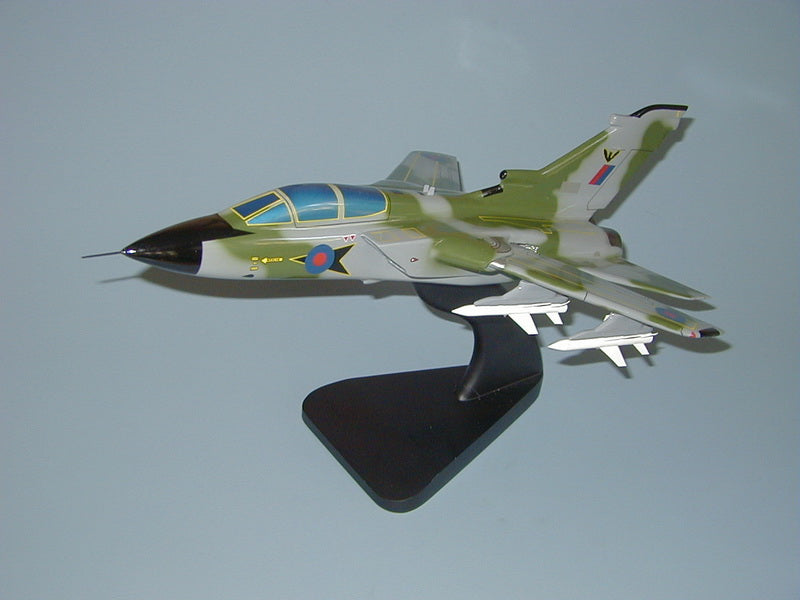The IDS Tornado carries a completely self-contained nav/attack system, terrain-following radar, and a dual computer-controlled triplex command stability augmentation system which combines a fly-by-wire system with auto stabilization. The adoption of such advanced avionics makes it possible for the Tornado to meet the differing requirements of the four user nations. Panavia Aircraft GmbH was formed on March 26, 1969, by three international companies, the British Aircraft Corporation (now British Aerospace Defense), Messerschmitt-Bolkow GmbH (now Deutsche Aerospace Military Aircraft Division) and Societa per Azioni Fiat (now Alenia Aeronautica). The new consortium was established to design, develop, and manufacture, for the air forces of the UK, Federal Republic of Germany, Italy, and the Federal German navy, an all-weather combat airplane then identified as the Multi-Role Combat Aircraft (MRCA). The name Panavia Tornado for this aircraft was officially adopted in September 1974, and on July 29, 1976 the British, Federal German, and Italian governments signed a memorandum of understanding covering the production of 809 Tornados. This was later extended to 923 airplanes to cover further sales to the partners, Saudi Arabia and Oman. The first flight of a prototype was on August 14, 1974. In January 1993, Saudi Arabia signed for a further 48 aircraft, bringing Tornado sales to a total of 992.
The successful Panavia industrial organization has become the model for the European Fighter Aircraft program. The Tornado is powered by two Turbo Union RB199-34R Mk 101 turbofans, each developing more than 16,000-lbs. afterburning thrust, giving the airplane a maximum speed at optimum altitude Mach 2.2, hi-lo-hi strike radius of 830 miles, and a ferry range of 2,417 miles.
Mahogany Wood. Scale: 1/40. Wingspan 12 1/8 inches, Length 14 7/8 inches.


